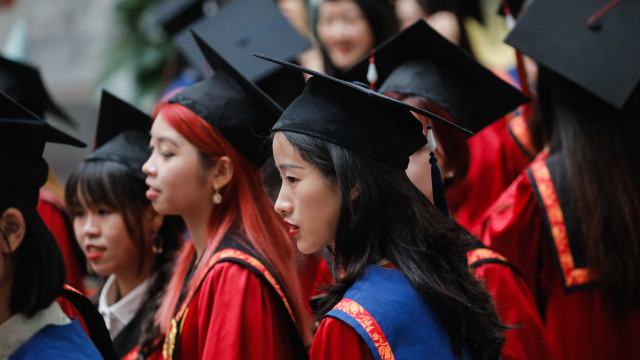Human rights group Amnesty International has reported that China is persecuting its citizens studying abroad for their political activism, and some students have reported harassment of family members back home.
China does not tolerate political dissent and uses sophisticated technical means as well as intimidation to deal with domestic protesters and activists.
Beijing's restrictions on political activity are increasingly spreading abroad in the form of "transnational repression", Amnesty International said in a report, citing interviews with dozens of students in eight European and North American countries.
According to the group, international students have reported that family members in China have received threats after attending events abroad, including commemorations of the bloody 1989 Tiananmen Square crackdown.
"Threats against family members in mainland China include confiscating their passports, firing them from their jobs, preventing promotions and pension benefits, or even restricting their physical freedom," the report said.
Students said they were blocked from posting and monitored on Chinese social apps — often the only way to communicate with family members — because of Beijing's Internet firewall.
One of the students told Amnesty International that the police showed his parents "transcripts of his online WeChat conversations with family members".
The students said they self-censored during classes and social interactions, and complained of mental health problems caused by the feeling of being watched everywhere, "ranging from stress to paranoia and depression."
"I would really like to publish my thesis... but I'm worried, so I decided not to," one of the students told human rights activists.
Beijing has not yet reacted to the report, published on May 13.
But he has previously rejected claims he is persecuting citizens living abroad, insisting he respects the sovereignty of other countries.
A report last year by the US research group Freedom House found that China was responsible for hundreds of cases of "transnational repression" since 2014, including attempts to pressure other countries to forcibly return members of the Uyghur minority.
Amnesty International stated that Beijing's attacks on students abroad have "created a 'climate of fear' on university campuses in Western Europe and North America, which has a negative impact on the human rights of students"./BGNES







